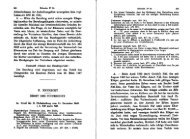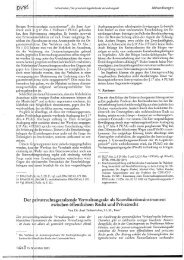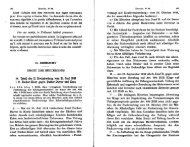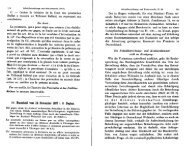Prozedurale Theorien der Gerechtigkeit - servat.unibe.ch
Prozedurale Theorien der Gerechtigkeit - servat.unibe.ch
Prozedurale Theorien der Gerechtigkeit - servat.unibe.ch
Sie wollen auch ein ePaper? Erhöhen Sie die Reichweite Ihrer Titel.
YUMPU macht aus Druck-PDFs automatisch weboptimierte ePaper, die Google liebt.
ung – insoweit gibt es eine Übereinstimmung mit den <strong>Theorien</strong> zur Optimierung<br />
des individuellen Nutzens in <strong>der</strong> hobbesianis<strong>ch</strong>en Grundposition –, son<strong>der</strong>n vielmehr<br />
darin, daß <strong>der</strong> größte Gesamtnutzen zu einem kollektiven Ziel erklärt wird. Dur<strong>ch</strong><br />
dieses Ziel, und sei es bloß formal, gehören utilitaristis<strong>ch</strong>e <strong>Theorien</strong> zur aristotelis<strong>ch</strong>en<br />
Grundposition 85 .<br />
S<strong>ch</strong>on unter den Klassikern des Utilitarismus (J. Bentham, J.S. Mill, H. Sidgwick) 86<br />
ist das Spektrum <strong>der</strong> utilitaristis<strong>ch</strong>en Einzelansätze so breit, daß eine Gesamtdarstellung<br />
o<strong>der</strong> gar Gesamtwi<strong>der</strong>legung wenig aussi<strong>ch</strong>tsrei<strong>ch</strong> ers<strong>ch</strong>eint 87 . Bereits mit dem<br />
Übergang von Bentham auf seinen S<strong>ch</strong>üler Mill beginnt ein Utilitarismus <strong>der</strong> zweiten<br />
Generation 88 . Die zunehmende Ausdifferenzierung utilitaristis<strong>ch</strong>en Gedankenguts<br />
ma<strong>ch</strong>t jede vereinheitli<strong>ch</strong>ende Darstellung spätestens seit <strong>der</strong> Überwindung des<br />
Handlungsutilitarismus (act utilitarianism) dur<strong>ch</strong> den Regelutilitarismus (rule utilitarianism)<br />
unmögli<strong>ch</strong> 89 . Es seien deshalb als Beispiele nur zwei aktuelle Modelle <strong>der</strong><br />
utilitaristis<strong>ch</strong>en politis<strong>ch</strong>en Philosophie erwähnt.<br />
85 Vgl. D. Lyons, Forms and Limits of Utilitarianism (1965), S. vii – Utilitarismus als teleologis<strong>ch</strong>e<br />
Theorie <strong>der</strong> Ri<strong>ch</strong>tigkeit; beson<strong>der</strong>s deutli<strong>ch</strong> P. Ricœur, Soi-même comme un autre (1990), S. 230:<br />
»tradition téléologique, incarnée par l'utilitarisme«; sowie S. 267: »L'utilitarisme est en effet une<br />
doctrine téléologique, dans la mesure où il définit la justice par la maximisation du bien pour le<br />
plus grand nombre.«<br />
86 Differenzierend zu Hauptvertretern des Utilitarismus D. Lyons, In the Interest of the Governed<br />
(1973), S. 21 ff. – bereits Mill habe Utilitarismus universell verstanden und damit an<strong>der</strong>s als Bentham.<br />
Vgl. au<strong>ch</strong> R.B. Brandt, Ethical Theory (1959), S. 396 – Grundlagen des Regelutilitarismus<br />
s<strong>ch</strong>on bei Mill, ni<strong>ch</strong>t aber bei Bentham.<br />
87 Denno<strong>ch</strong> gibt es Versu<strong>ch</strong>e einer allgemeinen Wi<strong>der</strong>legung; vgl. etwa J. Rawls, Theory of Justice<br />
(1971), § 28, S. 167 ff. (difficulties with average utility); D. Parfit, Reasons and Persons (1984), S. 24<br />
ff. (how consequentialism is indirectly self-defeating). Differenzierter S. S<strong>ch</strong>effler, Rejection of<br />
Consequentialism (1994), S. 20 (Formulierung einer 'hybriden' Theorie): »More specifically, I believe<br />
that a plausible agent-centred prerogative would allow ea<strong>ch</strong> agent to assign a certain proportionately<br />
greater weight to his own interests than to the interests of other people. I would then<br />
allow the agent to promote the non-optimal outcome of his <strong>ch</strong>oosing«. Dazu unten S. 269 (Kritik<br />
des Utilitarismus).<br />
88 Zu den Unters<strong>ch</strong>ieden, s<strong>ch</strong>on den Vertretern des klassis<strong>ch</strong>en Utilitarismus, siehe oben Fn. 86, sowie<br />
W. Lasars, Die klassis<strong>ch</strong>-utilitaristis<strong>ch</strong>e Begründung <strong>der</strong> <strong>Gere<strong>ch</strong>tigkeit</strong> (1982), S. 24 ff. Zu den<br />
Entwicklungslinien <strong>der</strong> utilitaristis<strong>ch</strong>en Ideenges<strong>ch</strong>i<strong>ch</strong>te von Bentham über Mill und Sidgwick bis<br />
zu Moore siehe A. Ross, Kritik <strong>der</strong> sogenannten praktis<strong>ch</strong>en Erkenntnis (1933), S. 119 ff.<br />
89 Unters<strong>ch</strong>eidung mit diesen Begriffen erstmals bei R.B. Brandt, Ethical Theory (1959), S. 380 ff., 413<br />
ff. (380): »[H]edonistic utilitarianism and ideal utilitarianism. These two forms of universal result<br />
theory ... we shall group together unter the title of 'act-utilitarianism.'« Sowie ebd., S. 413: »[T]he<br />
thesis of rule utilitarianism is, roughly, that an act is a persons's duty if and only i[f] it is required<br />
by the ideal rules for his community – those the conscientious following of whi<strong>ch</strong> would have<br />
maximum net expectable utility.« Zur genauen Differenzierung zwis<strong>ch</strong>en vers<strong>ch</strong>iedenen Formen<br />
des Handlungs- und Regelutilitarismus D. Lyons, Forms and Limits of Utilitarianism (1965), S. 8<br />
ff., 121 ff. (9): »Roughly speaking ..., Act-Utilitarianism is the theory that one should always perform<br />
acts the effects of whi<strong>ch</strong> would be at least as good as those of any alternative. These are right<br />
actions; all others are wrong. It is one's duty, or over-all obligation, to perform right acts only; and<br />
thus if one act has the best consequences, that act is the thing to be done.« (Hervorhebung bei Lyons).<br />
155


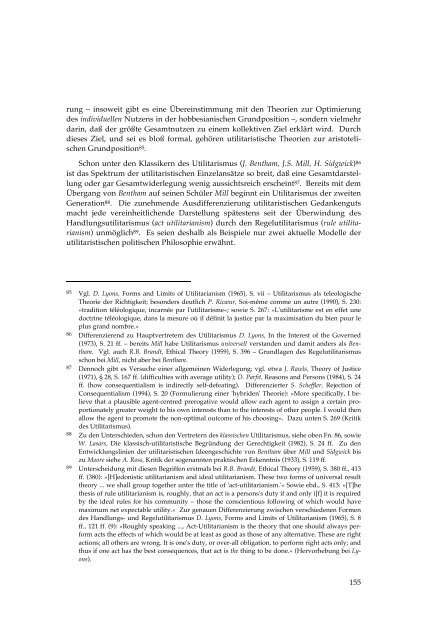
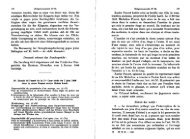
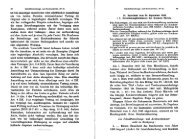
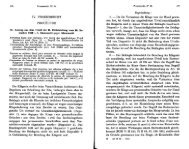
![Seminararbeit [Masterarbeit] - servat.unibe.ch - Universität Bern](https://img.yumpu.com/26241815/1/184x260/seminararbeit-masterarbeit-servatunibech-universitat-bern.jpg?quality=85)
